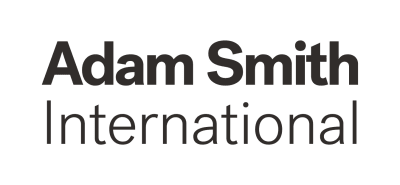
Engineering Consultant – Biomass Boiler and Power Generation Design Study
- Remote
- Honiara, Capital Territory (Honiara), Solomon Islands
- Project Positions
Job description
This is an assignment for Strongim Bisnis, an initiative of the Australian Government in Solomon Islands.
Dates & duration: September 2025 - February 2026
Location: Remote with Travel to the Solomon Islands
Reports to: Steve Porteus, Director – Engineering and Projects at SolTuna
Intervention/area of focus: Timber
ASI contact representative: Danya Salinas, Strongim Bisnis Program Manager
Background to the Strongim Bisnis program
Solomon Islands Australia Partnership’s Strongim Bisnis program is an economic development initiative to increase economic opportunities and participation for people and businesses in Solomon Islands.
Recognising that Solomon Islands has a small consumer market and economy, dispersed population, and high cost of doing business, Strongim Bisnis identifies and analyses specific sectors that have a high potential for growth and can create new employment and income
generation opportunities.
We facilitate strategic partners (including businesses, government, civil society, and associations) in those sectors to address the root constraints to growth and inclusion (Women, Youth and People living with disabilities) through innovative solutions.
Background to the Assignment
SolTuna Limited, based in Noro in the Solomon Islands, is the country’s leading tuna processor and a major contributor to local employment and economic activity. The company currently depends heavily on diesel-generated energy for its steam and electricity needs, leading to high operational costs and significant carbon emissions.
A 2024 study confirmed that woody biomass from local sources presents a technically viable and sustainable alternative to diesel for process heat generation. Building on this analysis, the next phase will deliver a detailed technical, logistical, and financial design for a biomass boiler system that meets SolTuna’s current and future energy needs.This will include evaluating biomass fuel supply options—both primary and backup sources—assessing infrastructure and site readiness, and designing systems to reduce energy waste. The study will also explore staged integration of biomass-powered electricity generation and provide initial recommendations for integrating solar energy in a hybrid setup.
This work supports SolTuna’s long-term goals to reduce reliance on imported fossil fuels, improve operational resilience, and transition to cleaner, locally sourced renewable energy.
Objective of the Assignment
To engage a qualified consulting firm to deliver a detailed design for SolTuna’s transition to biomass-based energy. This includes technical specifications for a biomass boiler system, a supply and logistics strategy (including backup sources), energy efficiency measures, and infrastructure design to support future integration of biomass-powered electricity and solar energy. The outputs
will guide SolTuna’s investment planning and procurement.
Scope of Work
The consultant will carry out the following activities:
3.1. Biomass Supply Assessment
Identify and evaluate multiple biomass supply sources within Solomon Islands and the broader region, with emphasis on plantation by-products. Include both primary suppliers (e.g., KFPL) and backup options.
Assess volumes, sustainability, delivered costs, storage needs, and risks associated with sole-supplier dependence.
Develop recommendations for diversified sourcing strategies and outline systems for ongoing supply monitoring (e.g., residue trials, periodic volume assessments).
3.2. Boiler System Design
Analyse SolTuna’s steam demand and load profile.
Specify a dual-fuel boiler system (biomass with diesel backup) to ensure energy continuity during biomass shortages or quality issues. If dual-fuel systems are not viable, assess options for integrating SolTuna’s existing boilers as backup, either in place or relocated to the new site.
Ensure the system design includes scrubber or filtration technology capable of meeting Australian air quality standards for particulates and odours, due to the site’s proximity to residential areas.
Assess ground elevation and readiness, proposing earthworks or site prep as needed.
Incorporate buffer tanks or heat dump systems to manage load variations.
Evaluate alternative fuel handling options (e.g., conveyor vs. manual systems) for practicality and cost-efficiency.
3.3. Power Generation Integration (Optional/Phased)
Evaluate feasibility and staging of biomass-powered electricity generation.• Include scenarios for supplying both SolTuna and the nearby NFD Kitano site, with economic comparison to current electricity and diesel costs.
Consider future integration with solar PV and recommend site design features to accommodate hybrid systems.
3.4. Infrastructure & Expansion Planning
Design scalable systems suitable for phased implementation, including power generation.
Align proposed infrastructure with existing facility layout and future expansions.
Integrate drainage and climate-resilient design principles.
Address health and safety concerns due to limited site access, including implications for emergency response (medical, fire, earthquake/tsunami evacuation) and propose corresponding design mitigation measures.
3.5. Energy Efficiency Strategy
Identify energy efficiency upgrades, including condensate return and load-reduction options.
Recommend design elements that reduce required boiler/generator capacity.
3.6. Financial Analysis & Planning
Provide indicative capital and operational costs for each key system element.
Compare technical options (e.g., different boilers, feed systems) and recommend based on ROI, lifecycle costs, and system performance.
Include financial modelling, payback periods, sensitivity analyses, and cost exclusion risks (e.g., civil works, solar integration).
Where feasible, offer comparative estimates for turnkey vs. custom-build options.
3.7. Documentation for Procurement
Deliver draft technical specifications and procurement guidance, sufficient to inform investment and tender preparation. If required to manage costs, this section may be scaled back to concept-level design documentation with clear guidance on next steps.
Include:
Equipment technical specs
Fuel system layout options
Construction considerations and compatibility requirements
Deliverables
The consultant will be expected to deliver the following:
Inception Report
Outlining methodology, data needs, timeline, and stakeholder engagement approach.
Biomass Supply & Logistics Report
Assessing available feedstock options, delivery risks, backup supply strategies, and recommended sourcing approach.
Boiler and Infrastructure Design Report
Including system specifications, layout plans, site readiness assessment, dual-fuel options, and expansion planning.
Power Generation Feasibility Report
Evaluating staged integration of biomass-powered electricity and solar, including potential to supply other nearby sites.
Energy Efficiency & Safety Recommendations
Proposing efficiency upgrades and addressing health, safety, and emergency response considerations at the proposed site.
Financial Analysis Report
Presenting indicative capital and operating costs, comparative system options, and key financial indicators (ROI, payback, lifecycle costs).
Final Technical Report & Presentation
Consolidated findings with practical recommendations, delivered to SolTuna and relevant stakeholders.
Duration and Timeline
The assignment is expected to run for 6 months, beginning in September 2025, with the final report delivered by end of February 2026.
Instruction to Bidders
Proposals should clearly set out how the consultancy will deliver the Scope of Work outlined in Section 3. Bidders are requested to include the following information in their submission:
Approach and Methodology
Description of how the consultancy team will carry out each activity under the Scope of Work.
Proposed timeline and work plan, including milestones and key deliverables.
Details of any assumptions, risks, or constraints.
The full proposal, including all required sections, should not exceed 15 pages in total. This excludes annexes or supporting documents (e.g. CVs, certificates), which may be attached separately if required.
2. Team Composition and Roles• Names and roles of personnel who will undertake the assignment.
Relevant qualifications and experience for each team member.
Expected level of effort (number of days) per team member.
3. Logistics and Travel
Proposed arrangements for travel to the Solomon Islands, including timing, duration, and number of staff to be present in-country.
4. Financial Proposal
A total cost inclusive of professional fees, travel, accommodation, and all related expenses.
A breakdown of costs by activity or work package.
Proposed payment schedule, structured against 3–6 milestone deliverables, showing the percentage of the contract value to be paid at each stage.
Please note that Strongim Bisnis will not reimburse, compensate, or otherwise cover any costs incurred by bidders in the preparation or submission of their proposals. All expenses related to this process are the sole responsibility of the bidder.
5. Company Information
Brief background of the company/consortium, including relevant experience with similar assignments.
Contact details of the lead consultant/firm.
How to apply
Applications should be submitted before 12 September 2025.
Any questions should be sent to sarah.lyons@strongimbisnis.com.sb before 5 September 2025. Please use the following title: Enquiry Engineering Consultant Strongim Bisnis.
Applications should include a one-page cover letter addressing the required qualifications, experience, and attributes, a CV of no more than four pages and the contact details of three professional referees.
or
All done!
Your application has been successfully submitted!
